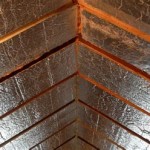What To Do With Old Ceiling Tiles In Atlanta, Georgia
Ceiling tiles, a common feature in many Atlanta homes and businesses, eventually require replacement due to age, water damage, aesthetic preferences, or renovations. Disposing of or repurposing these materials responsibly is essential, considering potential environmental concerns and local regulations in Atlanta, Georgia. This article outlines viable options for handling old ceiling tiles, emphasizing environmentally conscious and legally compliant methods.
Understanding the Composition and Potential Hazards
Before considering disposal or repurposing options, understanding the composition of the ceiling tiles is critical. Older ceiling tiles, particularly those installed before the 1980s, may contain asbestos. Asbestos is a naturally occurring mineral fiber known to cause serious health problems, including lung cancer, mesothelioma, and asbestosis. Disturbing asbestos-containing materials releases microscopic fibers into the air, posing a significant respiratory risk. Distinguishing between tiles that contain asbestos and those that do not requires professional testing.
Even if asbestos is not present, ceiling tiles can be composed of various materials, including mineral fibers, fiberglass, and paper pulp. These materials, while generally less hazardous than asbestos, can still pose environmental concerns if improperly disposed of. Some materials might leach harmful chemicals into the soil or contribute to landfill waste. Therefore, responsible handling is paramount.
Furthermore, consider any mold growth on the tiles. Mold indicates moisture issues and can trigger allergic reactions or respiratory problems, especially in individuals with sensitivities. If mold is present, it is important to address the underlying moisture problem before proceeding with disposal or repurposing. Mold-contaminated tiles should be handled with care, wearing appropriate personal protective equipment (PPE) such as gloves and a respirator.
Asbestos Testing and Abatement Procedures
Given the potential for asbestos content, the first step is to have the ceiling tiles professionally tested. Several environmental testing companies in Atlanta offer asbestos testing services. These companies will collect samples and analyze them in a laboratory to determine the presence and concentration of asbestos fibers. This testing provides crucial information for deciding on the appropriate course of action.
If the testing confirms the presence of asbestos, Georgia law stipulates specific procedures for asbestos abatement. These procedures are designed to protect public health and the environment. Asbestos abatement must be performed by a licensed asbestos contractor. These contractors have the necessary training, equipment, and experience to safely remove and dispose of asbestos-containing materials.
The abatement process typically involves sealing off the work area to prevent the spread of asbestos fibers, using specialized equipment to remove the tiles without disturbing the fibers, and properly packaging the waste for transportation to an approved landfill. The contractor is responsible for adhering to all state and federal regulations regarding asbestos disposal.
Attempting to remove asbestos-containing ceiling tiles without proper training and equipment is illegal and extremely dangerous. Homeowners and businesses should always rely on licensed professionals for asbestos abatement.
Disposal Options for Non-Asbestos Ceiling Tiles
If the ceiling tiles are confirmed to be asbestos-free, several disposal options are available. The most common is disposal at a local landfill. However, simply throwing the tiles into the general waste stream is not always the most environmentally responsible choice. Exploring alternative options can help minimize environmental impact.
Recycling is a preferred option if available. Some recycling centers in the Atlanta area accept specific types of ceiling tiles, typically those made from mineral fibers or fiberglass. Contacting local recycling centers to inquire about their acceptance policies and preparation requirements is important. Tiles may need to be separated by material type and cleaned before being accepted for recycling.
Another option is donation, particularly if the tiles are in good condition. Non-profit organizations, community centers, or construction material reuse stores might be interested in receiving donated ceiling tiles. This gives the tiles a new life and reduces the need for new materials. However, it is important to contact the organization beforehand to ensure they can accept the donation and that the tiles meet their requirements.
Bulk waste disposal services are also an option, especially for large quantities of ceiling tiles. These services will collect the tiles and transport them to a landfill or recycling center, depending on their capabilities. This can be a convenient option for homeowners or businesses who lack the means to transport the tiles themselves.
When disposing in a landfill, it is crucial to check with the specific landfill regarding their requirements. Some landfills may have specific regulations regarding the types of waste they accept and how it must be packaged. Following these regulations ensures compliance and prevents potential issues during disposal.
Repurposing and Creative Reuse
Repurposing ceiling tiles offers another sustainable alternative to disposal. While limited, potential applications exist, especially for homeowners or businesses with a creative mindset. Consider the composition of the tiles and their structural integrity when exploring repurposing options. Some ideas include:
Acoustic Panels: Ceiling tiles are designed to absorb sound, making them suitable for creating acoustic panels in home studios, offices, or home theaters. The tiles can be framed and hung on walls to reduce echo and improve sound quality. This repurposes the tiles and provides a functional benefit.
Crafting and Art Projects: Depending on the material, ceiling tiles can be used as a base for various crafting and art projects. They can be painted, decorated, or used as a backing for mosaics or other decorative elements. This is a way to give the tiles a new purpose and express creativity.
Packaging Material: Ceiling tiles can be cut into smaller pieces and used as packing material for fragile items. This is a sustainable alternative to bubble wrap or packing peanuts. However, ensure the tiles are clean and free of any contaminants that could damage the items being packed.
Garden Applications: Certain types of ceiling tiles can be used in the garden as weed barriers or as a base for raised garden beds. However, it is important to ensure the tiles are free of harmful chemicals that could leach into the soil. Avoid using tiles that contain asbestos or other hazardous materials.
These repurposing suggestions require careful consideration of the tile's composition, condition, and intended use. Ensure that the repurposed tiles do not pose any health or safety risks. If unsure, it is best to err on the side of caution and opt for responsible disposal.
Navigating Local Regulations in Atlanta
Atlanta and the state of Georgia have specific regulations regarding waste disposal, particularly when dealing with potentially hazardous materials. Familiarizing oneself with these regulations is crucial to ensure compliance and avoid potential fines or legal issues. The Georgia Department of Natural Resources (DNR) oversees waste management and provides information on proper disposal procedures.
It's important to research local ordinances related to construction and demolition debris disposal. These ordinances may specify designated landfills for certain types of waste or require permits for large-scale disposal projects. Contacting the City of Atlanta's Department of Public Works or the county environmental services department can provide specific information about local regulations.
For asbestos-containing materials, strict regulations apply, as previously discussed. The Georgia Department of Natural Resources' Environmental Protection Division (EPD) enforces these regulations. Failure to comply with asbestos abatement and disposal requirements can result in significant penalties. Therefore, engaging a licensed asbestos contractor is imperative when dealing with asbestos-containing ceiling tiles.
Furthermore, consider the potential impact on local water resources. Improper disposal of ceiling tiles can contribute to water pollution if harmful chemicals leach into the groundwater. Responsible disposal methods, such as recycling or disposal at approved landfills, help protect water quality.
By understanding and adhering to local regulations, homeowners and businesses in Atlanta can ensure that they are handling old ceiling tiles in a safe, environmentally responsible, and legally compliant manner.

Replacing Drop Ceiling Tiles

Replacing Drop Ceiling Tiles

Replacing Drop Ceiling Tiles

Replacing Drop Ceiling Tiles

Replacing Drop Ceiling Tiles

Replacing Drop Ceiling Tiles

What Do Asbestos Ceiling Tiles Look Like Removal Pro

Southside Acoustical Ceilings Home

What Do Asbestos Ceiling Tiles Look Like Removal Pro

Southside Acoustical Ceilings Home
Related Posts








